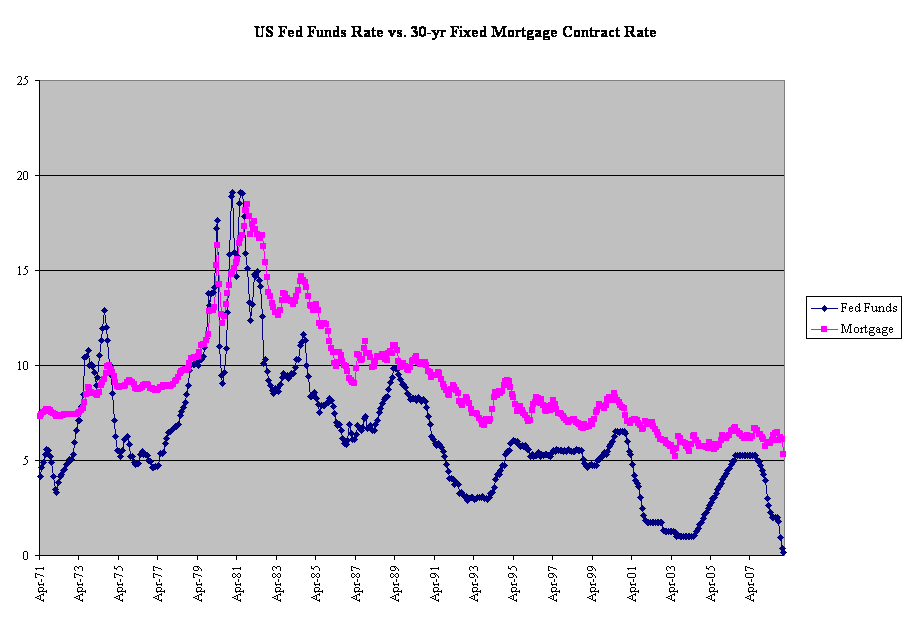I know the current wisdom is that the mortgage markets are in crisis, the housing market sucks, and the fed funds rate is at its lowest point in history -- and that, given all of the foreclosures and the popping of the housing bubble, we are fucked when it comes to the housing credit market.
I also know that the although the fed funds rate has declined significantly over the last year (to almost zero!), 30-yr fixed mortgage rates for folks with almost perfect credit have not decreased below the 5% mark.
So, I started asking some questions about the history of the fed funds rate, the history of the average 30-yr fixed mortgage rate, and, well... you know me, I love data.
Next thing you know, I've got an excel spreadsheet that is teaching me all sorts of interesting things (click the chart and select "all sizes" to see the whole graph):

For example, while the spread between the fed funds rate and the average 30-yr fixed mortgage is currently 5.17%, it is definitely not at its highest, which was 6.15 in August of 1982.
In fact, the spread, while averaging 2.67% since 1971 (when the Fed started reporting average 30-yr mortgage rates), has been larger than its current value on several occasions in the past.
What's more impressive is that the difference between the two has ranged from 6.15% to -4.18%! Yes, that's right. There have been periods of time when it was much cheaper for a homeowner to get a 30-yr fixed home mortgage than for a member of the Federal Reserve to borrow money from other members of the Federal Reserve.
This graph shows that the fed funds rate and mortgage rates have been in periods of much larger turmoil and helps to put our current situation into perspective. The most mathematically interesting thing about our current situation is the depths to which the fed is trying to push the fed funds rate (approaching zero), and not the reaction of the market to that action, which looks pretty normal when compared against history.
And yet, the current talk is all about how the banking credit crisis and failure to lend between banks is fueling the lack of mortgages being offered to qualified homeowners. Clearly, this is not the whole picture.
The entire spreadsheet is available to the first ten takers here: http://rapidshare.com/files/181802534/Book1.xls.html
No comments:
Post a Comment